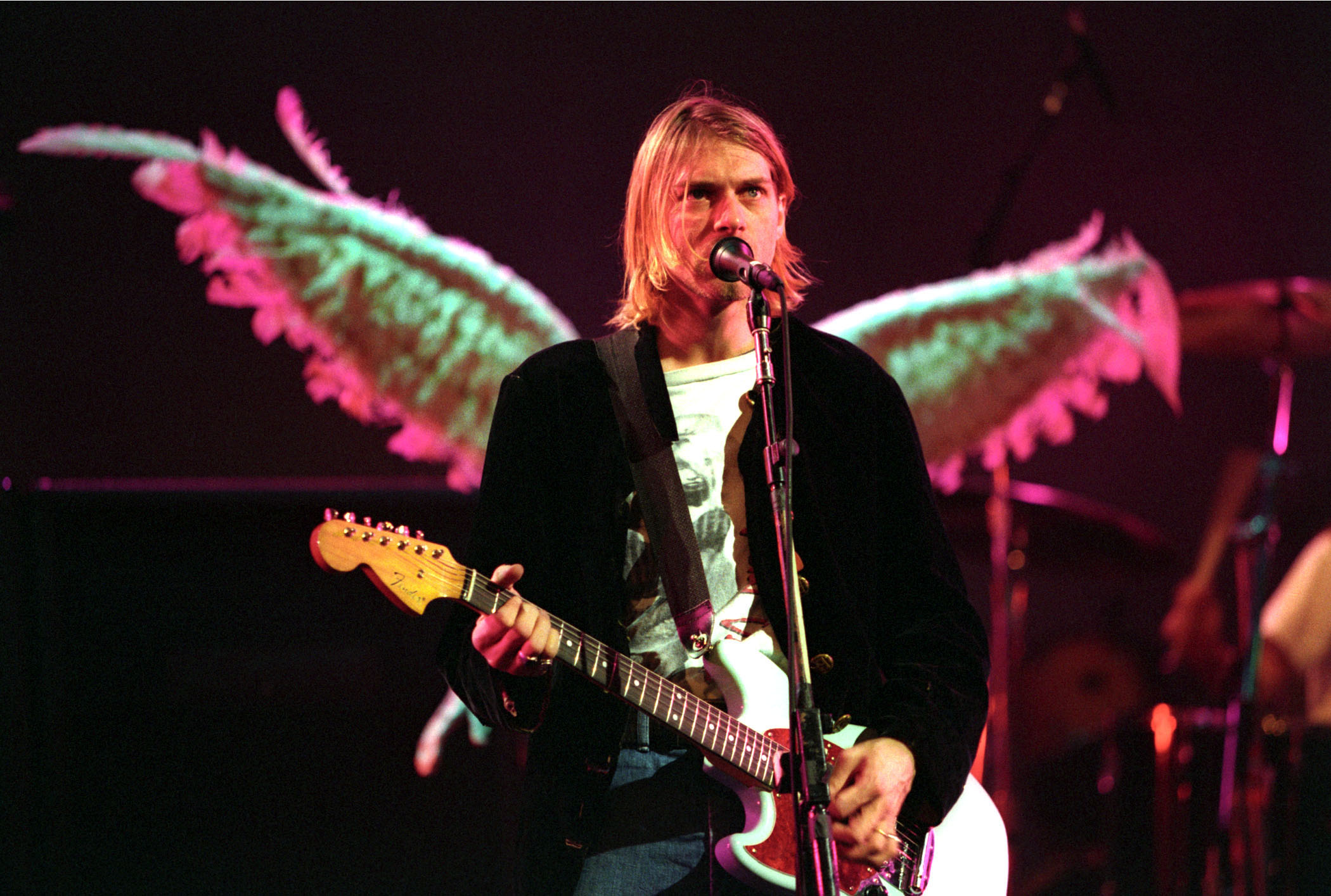(This piece was originally published in the June 1994 issue of SPIN.)
In John Lydon’s autobiography, Rotten: No Irish, No Blacks, No Dogs, he compares Nirvana to Eddie and the Hot Rods, a late-’70s R&B bar band who’d lucked into a little popularity and acclaim during the dawn of British punk, when any group with short hair and short songs were temporarily mistaken for revolutionaries. “It really annoys me,” Lydon writes, “…when [Nirvana] say they were influenced by the Sex Pistols. They clearly can’t be. They missed the point somewhere.” My first thought on reading this was, Jesus, what a clueless fool. But thinking more about it, I realized he had a point, however reductive and however inadvertently self-indicting.
Lydon, who likes to characterize himself as a talented troublemaker, can’t see Nirvana for the darkness and length of his own shadow. To him, the members of Nirvana can only be protégés, and so their very admiration of his work becomes an embarassment, an admission of weakness. A classic pre-feminist bully, Lydon all but calls them fags and wussies. But of course, the very qualities that made him and other punk hardliners suspicious of Nirvana — sincerity, overemotionalism, formal conservatism, intellectual spazziness — are at the center of why they’re a great band.
The Sex Pistols predated AIDS, homelessness, MTV. Not to say life was easy in the mid-’70s, but Nirvana didn’t have the luxury, nor the megalomaniacal naïveté, to attempt a coup of popular culture. In this world, it’s hard enough just to get an absolutely honest song on the airwaves. Nirvana, like most interesting current bands, just wanted to represent their exact feelings appropriately. Luckily, in their case, they were guided by Kurt Cobain, a gifted if obviously tormented man with high ideals, original ideas, and a beautifully erratic way of expressing himself.

Also Read
Kurt Cobain Forever
Kurt Cobain may have loved John Lydon, but I suspect that it was in the way a kid loves his or her abusive father. Unlike that cynical old f–k, Cobain wasn’t a monster, ever. At his worst, he was a mess, but so are most of us, only we get to act out our s–t among friends, and not in front of people who think our every woe is a generational signifier. I mean, Cobain’s idea of media manipulation was to wear a Daniel Johnston T-shirt during photo sessions. He may have been rich, but he thought like an anarchist. He wanted to share. He wrote consistently great lyrics about not being able to express himself adequately, he sang like God with a dog’s mouth, and he believed in the communicative powers of popular music. And precisely because he believed, Nirvana wound up doing what the Pistols could only masturbate thinking about.
Cobain’s work nailed how a ton of people feel. There are few moments in rock as bewilderingly moving as when he mumbled, “I found it hard / It’s hard to find / Oh well, whatever / Nevermind.” There’s that bizarre, agonized, and devastating promise he keeps making throughout “Heart-Shaped Box”: “Wish that I could eat your cancer when you turn black.” Take a look in his eyes the next time MTV runs the “Heart-Shaped Box” video, and see if you can sort out the pain from the ironic detachment from the horror from the defensiveness.
American culture has reached a strange impasse, which is largely the fault of our pathetic educational system. It’s left us intellectually undernourished, emotionally confused, and way, way too vulnerable. That imbalance may have produced artists like Cobain, but it has also softened our brains to the point where we just let political and corporate higher-ups of various sorts manipulate our very ways of receiving information. Instead of being encouraged to expand imaginatively on the music we listen to, we’re told to reduce everything in our world into simple rights and wrongs, effectives and ineffectives, yesses and nos. We comply because the world is scary and because we understandably want to be coddled by the things that interest us. Kurt Cobain, so conflicted in his attitude toward success, and so complex in his ideas abut love and politics, was a classic beneficiary and victim of this dilemma.
What’s amazing is that after all that interference, he won. Well, he didn’t, but Nirvana did. Nirvana, a band that embodied every important quality that punk had ever championed managed for a brief period to flip off powermongers and signal believers with the very same gesture. And, in succeeding so spectacularly, and so cleanly, Cobain and crew showed what was possible, even in this ugly and demoralized culture. Unfortunately, with his stupid, infuriating death, he also showed us what our belief costs.




